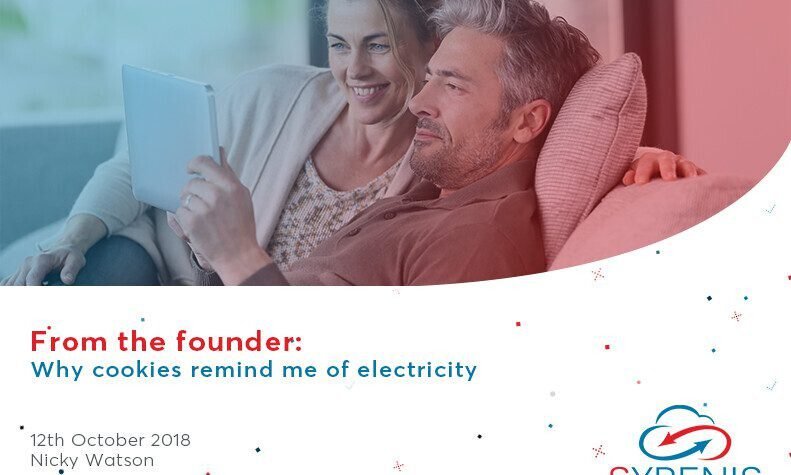
Why cookies remind me of electricity
Electricity is very widely accepted today as no bad thing. I struggle to imagine that we'd prefer dim, sooty gas lights, prone to leaks and explosions, or even darkness…
Initially, electricity was shrouded in fear. It was a mysterious force, whose fast commercialisation (due to the rivalry between Edison and Westinghouse in the US) meant that it wasn’t implemented with safety in mind, or even looking at which technology was better. It was a mad dash to own and capitalise on the market and the ‘battle of the currents’ had deadly results, motivated by huge financial rewards. They even electrocuted an elephant in a PR stunt!
Demand for electricity grew exponentially, and for 200 years nobody questioned how it was produced or what the long-term cost of our dependence on it would be. Now we realise that the methods used to produce electricity have consequences, and that, because we did not understand those consequences, we built inefficient housing and appliances which now must be changed in order to prevent the greatest tragedy of all.
The hero we are relying on to turn around the damage that’s been done? Electricity, the renewable kind. Because electricity itself was never the problem, it was our manufacture and consumption of it without understanding the consequences.
But how is that like the tiny text files we call cookies?
Well, cookies were created to solve a problem. The web being a stateless system (i.e. where each page request is independent and a web server does not connect them) meant that website functionality was limited and the user experience was frustrating to say the least. In 1995, however, along came a text file that became known as a cookie. Often containing just a single line of code, they revolutionised the internet. Websites became interactive, online shopping baskets were born, and e-commerce and the online consumer were created.
Cookies created an electricity-sized commercial opportunity. The ability to track users across multiple sites and see their interests in depth generated a new information industry and re-shaped many markets. Before long, masses of information was being collected, spawning the term ‘big data’. ‘Big data’ modelling and AI monetised web behaviour, creating a multi-trillion dollar market. Individuals, blithely unaware of how their personal data was being used, eagerly swallowed everything the cookie-driven internet threw at them, trading their data for utility and convenience. Consumers began to take notice after the 2016 US presidential election showed just how far-reaching and how powerful profiled and modelled personal data collected from social media had become. Add to this a succession of high profile data breaches and privacy violations, and we are finally beginning to realise the implications of giving unfettered access to our online selves.
So how can consumers regain control of their personal data? Is it too late? The answer is…

















